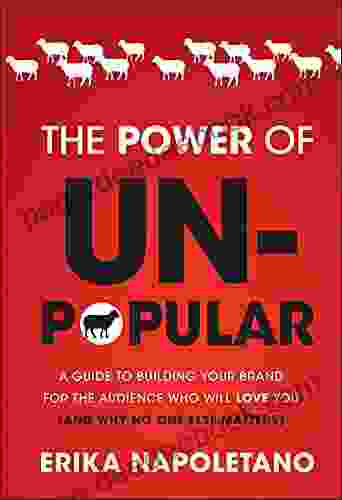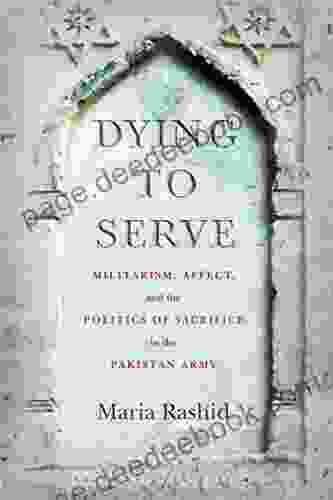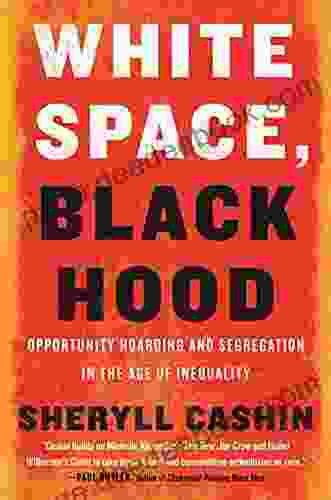Militarism, Sacrifice, and the Politics of the Pakistan Army in South Asia

Militarism, the glorification and use of military power as a means of resolving political and social issues, has been a significant force in South Asia, particularly in Pakistan. The Pakistan Army has played a central role in shaping the country's political, economic, and social landscape since its independence in 1947.
This article examines the impact of militarism on Pakistan and the complex politics of sacrifice that surround the role of the Pakistan Army. We will explore the historical roots of militarism in Pakistan, the army's involvement in politics, and the social and psychological consequences of military service on Pakistani society.
4.6 out of 5
| Language | : | English |
| File size | : | 4849 KB |
| Text-to-Speech | : | Enabled |
| Screen Reader | : | Supported |
| Enhanced typesetting | : | Enabled |
| Word Wise | : | Enabled |
| Print length | : | 290 pages |
Historical Roots of Militarism in Pakistan
The origins of militarism in Pakistan can be traced back to the country's violent partition from India in 1947. The war and subsequent displacement of millions of people created a sense of insecurity and a belief that military strength was essential for survival.
The army also played a prominent role in the early years of Pakistan's independence, suppressing internal dissent and securing the country's borders. This experience further solidified the military's self-perception as the guarantor of national security and stability.
The Ayub Khan Era
In 1958, General Ayub Khan seized power in a military coup, ushering in a period of martial law that lasted for over a decade. Ayub Khan's regime emphasized economic development and modernization, but it also cracked down on political dissent and opposition.
During Ayub Khan's rule, the army became increasingly involved in economic and political affairs. The military established numerous industrial and commercial enterprises, and officers were appointed to key positions in government. This further blurred the lines between the military and civilian spheres and entrenched militarism in Pakistan's political culture.
The Zia-ul-Haq Era
General Zia-ul-Haq came to power in a military coup in 1977. Zia's regime introduced a conservative and authoritarian Islamic ideology into Pakistani society, further strengthening the army's role in both domestic and foreign affairs.
Under Zia's rule, the army became even more deeply involved in politics and economic affairs. The military's budget was increased significantly, and officers were given control of key industries and businesses.
Zia's regime also saw a significant increase in military spending and the expansion of the armed forces. The army's involvement in the Afghan War against the Soviet Union further enhanced its status and influence within Pakistani society.
The Politics of Sacrifice
The Pakistan Army has consistently projected itself as the defender of the nation and the ultimate guarantor of its security. This image has been reinforced through a powerful narrative of sacrifice and martyrdom that glorifies military service.
The army's propaganda machine has played a crucial role in constructing this narrative. Soldiers are portrayed as selfless heroes who willingly sacrifice their lives for the nation. This rhetoric has been effective in creating a sense of national unity and loyalty to the military.
The politics of sacrifice has also been used to justify the army's involvement in politics. The military's self-appointed role as the protector of the nation has provided it with a pretext to intervene in civilian affairs whenever it deems necessary.
This narrative has had a profound impact on Pakistani society. The constant exposure to images of military sacrifice and heroism has created a culture of militarism that pervades all levels of society.
Social and Psychological Consequences
The glorification of military service has had significant social and psychological consequences for Pakistani society. The emphasis on sacrifice and martyrdom has created a sense of moral superiority among military personnel and their families.
This sense of superiority can lead to a lack of empathy for civilians and a disregard for human rights. The military's involvement in politics has also contributed to a culture of authoritarianism and a lack of accountability.
Additionally, the constant threat of war and the glorification of military service have created a sense of insecurity and anxiety within Pakistani society. This anxiety can manifest itself in various forms, including violence, aggression, and distrust.
Militarism has had a profound impact on Pakistan's political, social, and economic landscape. The Pakistan Army's involvement in politics and its self-appointed role as the guarantor of national security have created a culture of militarism that pervades all levels of society.
The politics of sacrifice, which glorifies military service and portrays soldiers as selfless heroes, has contributed to the army's high status within Pakistani society. However, this narrative has also had negative consequences, creating a sense of moral superiority among military personnel, fostering authoritarianism, and perpetuating a culture of violence and insecurity.
Addressing the legacy of militarism in Pakistan requires a comprehensive approach that includes demilitarizing politics, promoting civilian control over the military, and challenging the glorification of military service. It also requires addressing the social and psychological consequences of militarism and fostering a culture of peace and respect for human rights.
4.6 out of 5
| Language | : | English |
| File size | : | 4849 KB |
| Text-to-Speech | : | Enabled |
| Screen Reader | : | Supported |
| Enhanced typesetting | : | Enabled |
| Word Wise | : | Enabled |
| Print length | : | 290 pages |
Do you want to contribute by writing guest posts on this blog?
Please contact us and send us a resume of previous articles that you have written.
 Book
Book Novel
Novel Page
Page Genre
Genre E-book
E-book Paragraph
Paragraph Bookmark
Bookmark Shelf
Shelf Glossary
Glossary Bibliography
Bibliography Foreword
Foreword Synopsis
Synopsis Annotation
Annotation Footnote
Footnote Tome
Tome Bestseller
Bestseller Classics
Classics Narrative
Narrative Biography
Biography Memoir
Memoir Reference
Reference Thesaurus
Thesaurus Character
Character Librarian
Librarian Stacks
Stacks Archives
Archives Lending
Lending Reserve
Reserve Academic
Academic Journals
Journals Reading Room
Reading Room Special Collections
Special Collections Interlibrary
Interlibrary Literacy
Literacy Thesis
Thesis Dissertation
Dissertation Storytelling
Storytelling Reading List
Reading List Book Club
Book Club Theory
Theory K A Bonsall
K A Bonsall Laura King
Laura King Reds Johnson
Reds Johnson Simon Cann
Simon Cann Lucy Cousins
Lucy Cousins Rodney Friend
Rodney Friend Susan Mallery
Susan Mallery Nancy O Connor
Nancy O Connor Trust Genics
Trust Genics Michael Zadoorian
Michael Zadoorian Rolando Hinojosa
Rolando Hinojosa Karen B Winnick
Karen B Winnick John Slavio
John Slavio Rod J Rohrich
Rod J Rohrich Eileen Enwright Hodgetts
Eileen Enwright Hodgetts Course Hero
Course Hero David Gardner
David Gardner Geoff Boucher
Geoff Boucher Mario Scian
Mario Scian Laura Andersen
Laura Andersen
Light bulbAdvertise smarter! Our strategic ad space ensures maximum exposure. Reserve your spot today!

 Yukio MishimaPhysical Approach with Applications and MATLAB Textbooks in Mathematics: An...
Yukio MishimaPhysical Approach with Applications and MATLAB Textbooks in Mathematics: An... Forrest ReedFollow ·14.9k
Forrest ReedFollow ·14.9k H.G. WellsFollow ·3.6k
H.G. WellsFollow ·3.6k Stephen KingFollow ·15.9k
Stephen KingFollow ·15.9k Edgar HayesFollow ·9.8k
Edgar HayesFollow ·9.8k Kenzaburō ŌeFollow ·18.1k
Kenzaburō ŌeFollow ·18.1k Darnell MitchellFollow ·11.8k
Darnell MitchellFollow ·11.8k Keith CoxFollow ·9.1k
Keith CoxFollow ·9.1k Milan KunderaFollow ·4.1k
Milan KunderaFollow ·4.1k

 Chandler Ward
Chandler WardEvery Cowgirl Loves Rodeo: A Western Adventure
Every Cowgirl...

 Dylan Mitchell
Dylan MitchellThe Connection Algorithm: Take Risks Defy The Status Quo...
In the tapestry of life, we are often...

 Terence Nelson
Terence NelsonThe Ultimate Guide to Building a Beloved Brand: Unlocking...
In today's fiercely competitive market,...

 Warren Bell
Warren BellGoverning Metropolitan Regions in the 21st Century:...
Metropolitan regions are home to a majority of...
4.6 out of 5
| Language | : | English |
| File size | : | 4849 KB |
| Text-to-Speech | : | Enabled |
| Screen Reader | : | Supported |
| Enhanced typesetting | : | Enabled |
| Word Wise | : | Enabled |
| Print length | : | 290 pages |













